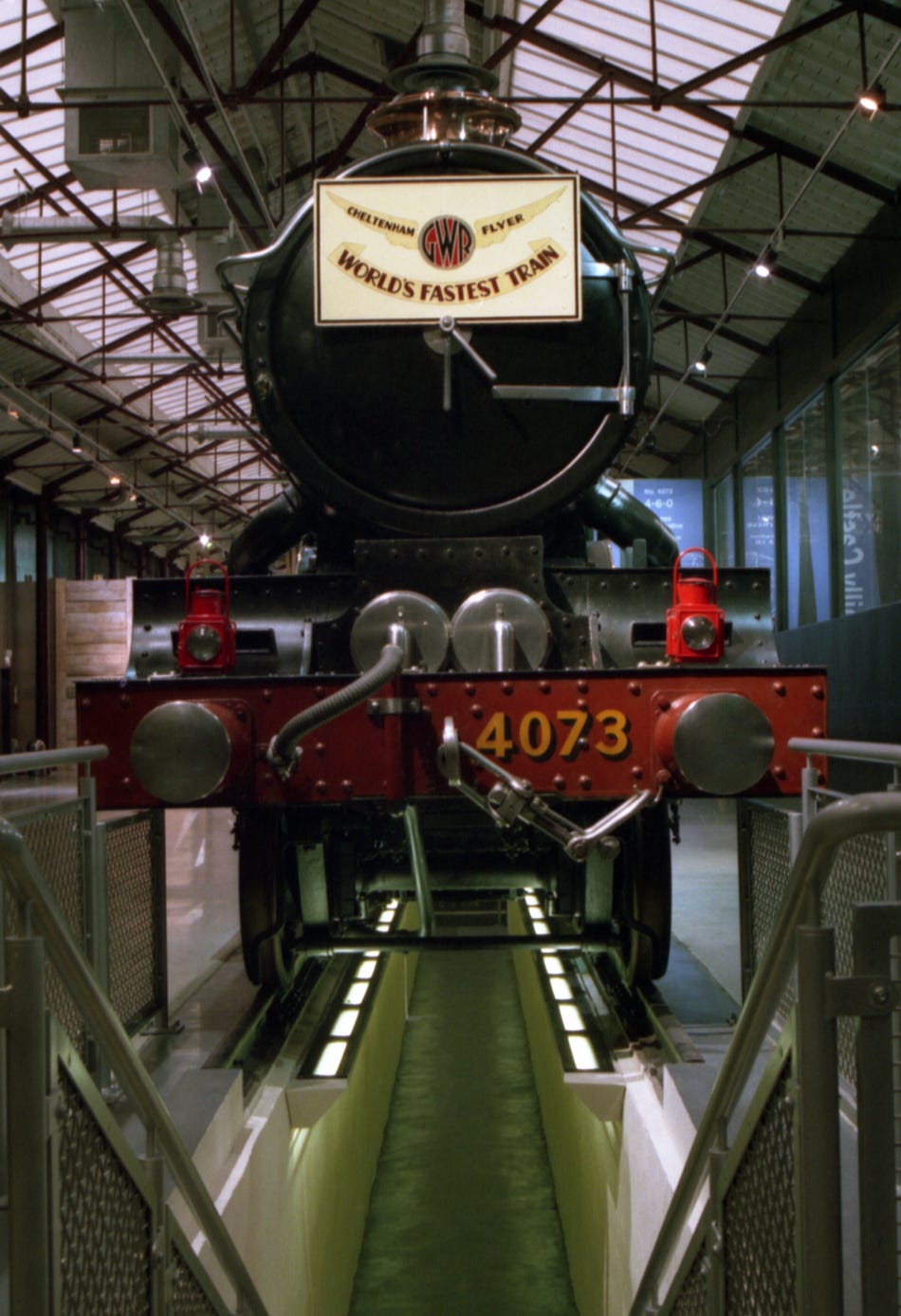GWR Castle Class
One the GWR’s most successful steam locomotives entered service one hundred years ago, today

During the Victorian era the railway companies had been fiercely competitive, each vying for traffic. In the Edwardian period, improved technology meant that more powerful locomotives could be built.
George Churchward became the GWR’s Chief Mechanical Engineer in 1902, and set about a series of new locomotive designs, utilizing the latest technology. In 1904, locomotive 3440 City Of Truro was the first engine to haul a train at over 100 miles per hour (this claim is often contested).
The first 4-6-0 two cylinder engines appeared on the GWR in 1902. Three experimental engines were built, but a production series started in 1906 (some engines were built with 4-4-2 wheel arrangement but later converted to 4-6-0). The class had a maximum speed of 90 miles per hour, and better adhesion than the 4-4-2 types. They were used on the fastest express passenger services.
Churchward’s successor, Charles Collett, responded to a need for an improved and modernised design with a new 4-6-0 class. The new engines were 10% more powerful than the earlier Saints.
On 23rd August 1923, the first of the new engines, number 4073 Caerphilly Castle, appeared at Paddington. The GWR heralded this engine as Britain’s most powerful express passenger engine.
Exhibition and Trials
4073 Caerphilly Castle was exhibited at the British Empire Exhibition in 1924, alongside the LNER 4-6-2 locomotive Flying Scotsman. In 1925, number 4079 Pendennis Castle represented the GWR in trials on the East Coast Main Line. In return LNER number 4474 Victor Wild, represented the LNER on GWR tracks.
Keep reading with a 7-day free trial
Subscribe to Great Western News and Views to keep reading this post and get 7 days of free access to the full post archives.


